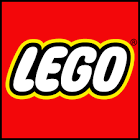The Lego Group

Estimated electricity consumption
N/A
Countries of production presence
N/A
The Lego Group is a Danish toy company that has been in operation since 1932. The company is headquartered in Billund, Denmark, and has operations in more than 130 countries around the world. The Lego Group is known for its iconic plastic building blocks, which have been a popular toy for children and adults alike for generations.
In recent years, The Lego Group has made a significant effort to reduce its carbon footprint and become a more sustainable company. The company has set a goal to achieve 100% renewable energy by 2020, and has made significant progress towards this goal in recent years.
One of the key ways that The Lego Group is working towards decarbonisation is through the use of corporate power purchase agreements (PPAs). A corporate PPA is an agreement between a company and a renewable energy provider, in which the company agrees to purchase a certain amount of renewable energy from the provider over a specified period of time. By entering into these agreements, companies like The Lego Group can help to support the development of renewable energy projects and reduce their reliance on fossil fuels.
The Lego Group has signed several corporate PPAs in recent years, including agreements to purchase wind power from a wind farm in Scotland and solar power from a solar farm in the United States. These agreements have helped The Lego Group to reduce its carbon footprint and become a more sustainable company.
In addition to its use of corporate PPAs, The Lego Group has also invested in its own renewable energy projects. The company has installed solar panels on the roof of its factory in Mexico, and has also invested in wind power projects in Germany and the United Kingdom. These projects have helped The Lego Group to reduce its reliance on fossil fuels and become a more sustainable company.
Another key area of focus for The Lego Group is corporate energy efficiency. The company has implemented a number of energy-saving measures in its factories and offices around the world, including the installation of energy-efficient lighting and heating systems. These measures have helped The Lego Group to reduce its energy consumption and become a more efficient company.
In addition to its efforts to reduce its carbon footprint, The Lego Group is also committed to using sustainable materials in its products. The company has set a goal to use sustainable materials in all of its products by 2030, and has made significant progress towards this goal in recent years.
One of the key sustainable materials that The Lego Group is using in its products is plant-based plastic. The company has developed a plant-based plastic made from sugarcane, which has a lower carbon footprint than traditional plastic. The company has also introduced a range of sustainable packaging materials, including paper bags and cardboard boxes, which are made from recycled materials and are fully recyclable.
In conclusion, The Lego Group is a company that is committed to sustainability and decarbonisation. The company has set ambitious goals to achieve 100% renewable energy and use sustainable materials in all of its products, and has made significant progress towards these goals in recent years. Through its use of corporate PPAs, investment in renewable energy projects, and focus on corporate energy efficiency, The Lego Group is leading the way in the transition to a more sustainable future.